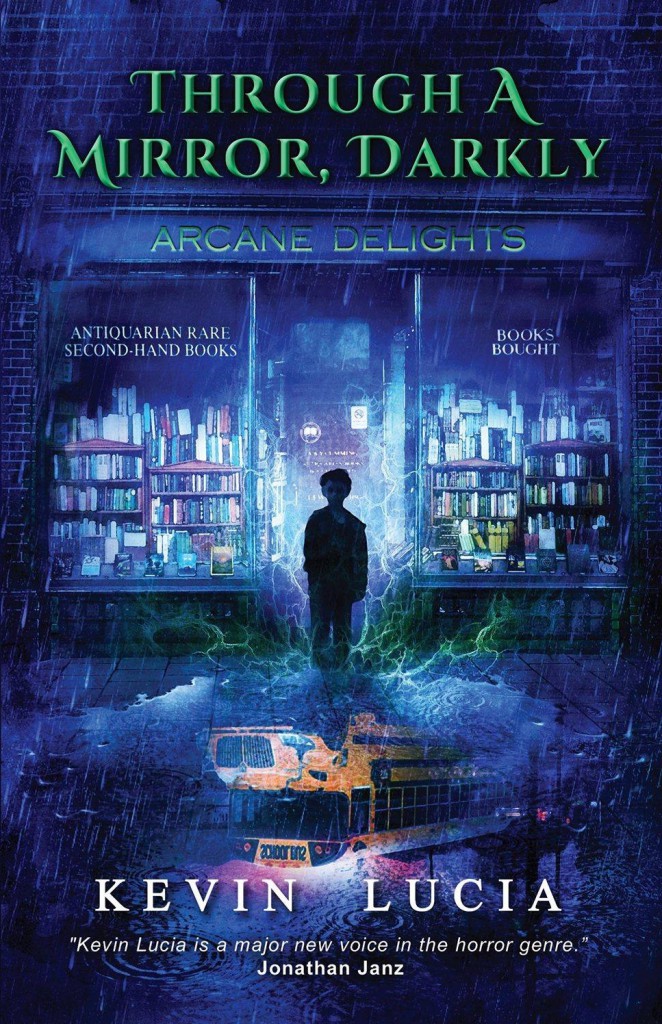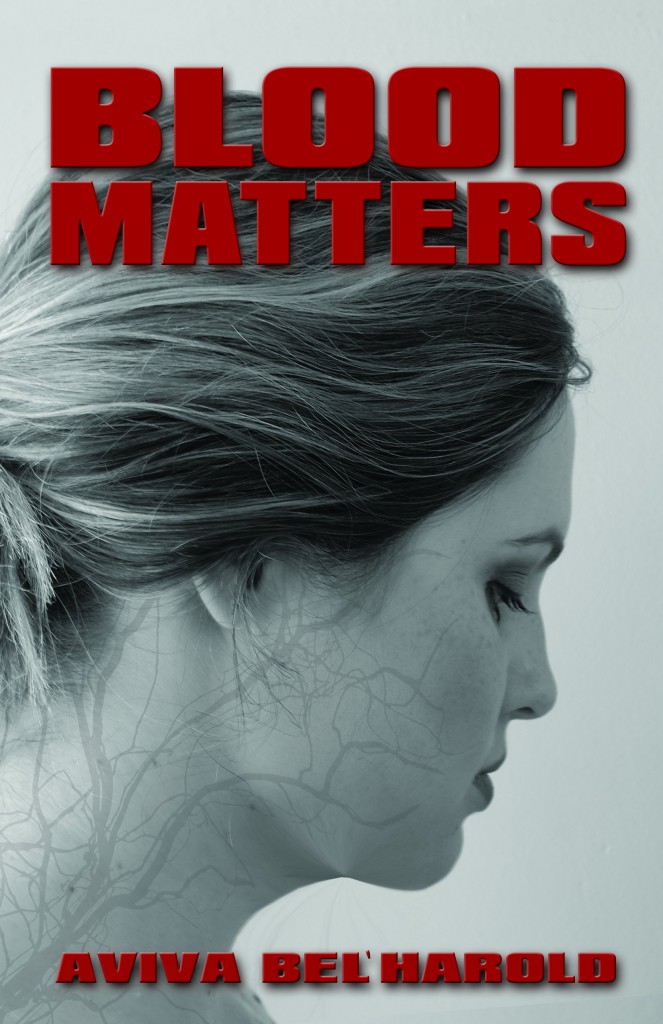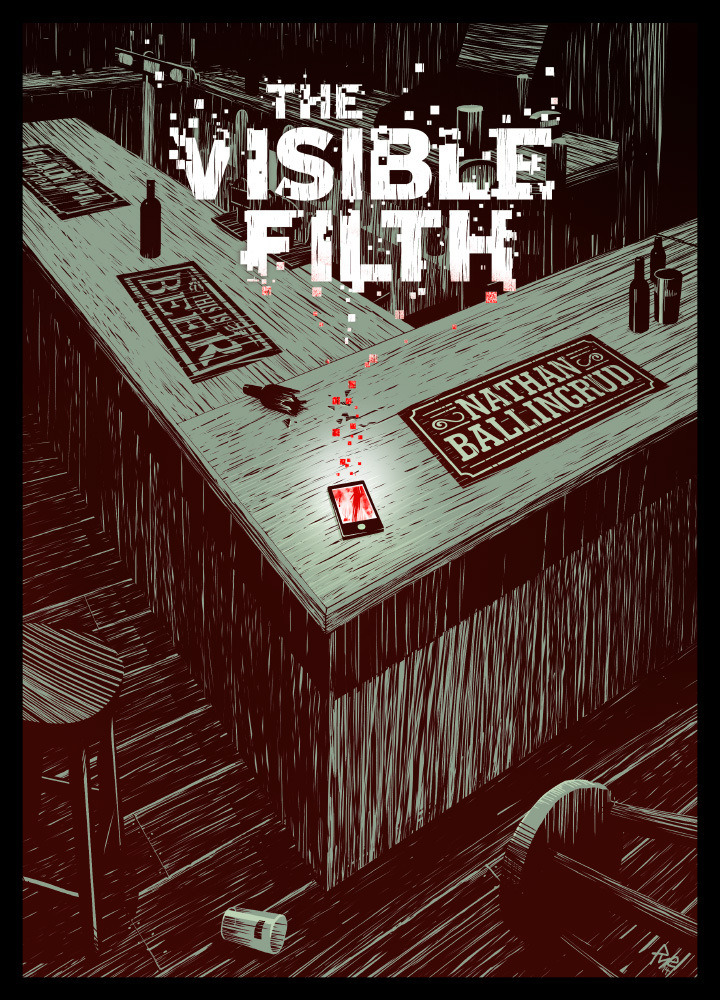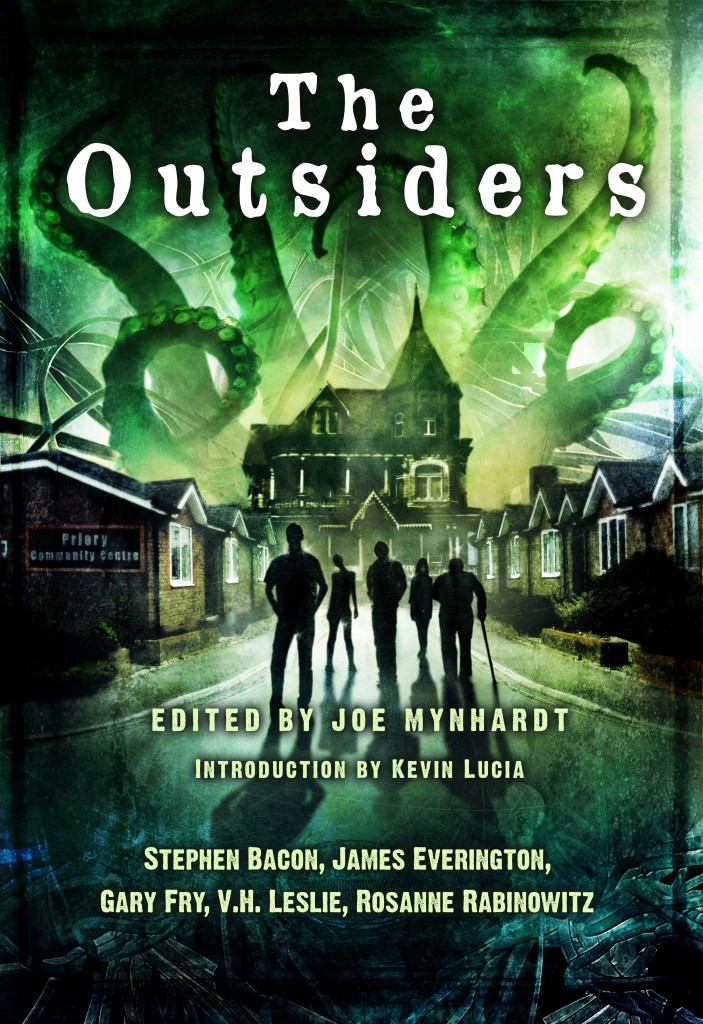This week on The Scariest Part, my guest is Kevin Lucia, whose latest book is the story collection Through a Mirror, Darkly. Here’s the publisher’s description:
Arcane Delights. Clifton Heights’ premier rare and used bookstore. In it, new owner Kevin Ellison has inherited far more than a family legacy, for inside are tales that will amaze, astound, thrill…and terrify.
An ancient evil thirsty for lost souls. A very different kind of taxi service with destinations not on any known map. Three coins that grant the bearer’s fondest wishes, and a father whose crippling grief gives birth to something dark and hungry.
Every town harbors secrets; Kevin Ellison is about to discover those that lurk in the shadows of Clifton Heights.
And now, let’s hear what the scariest part was for Kevin Lucia:
The scariest part of Through A Mirror, Darkly, actually came several years prior, when I first wrote my new collection’s concluding novella “And I Watered It, With Tears” for Lamplight Magazine. The reason for this is very simple: it was the first time I’d dared write about something very personal, a frightening incident involving my son and I.
Until then I had written a lot of “surface stories.” Maybe they’d been inspired by things I’d seen and heard in life, so they had some originality to them, but up until that point I hadn’t tapped into anything as personal as I did with that novella. Or, perhaps it would be more accurate to say I hadn’t successfully tapped into anything personal.
I had tried, certainly. See, when he was two years old, my son was diagnosed as severely autistic. At that moment, everything in our lives changed forever. He’s since been downgraded to moderately/mildly autistic and the future looks much brighter than it did six years ago. Even so, our lives will never be the same. Our perspectives have required a shift of global proportions. We’ve had to change our way of life, have had to alter our approach to even the smallest family ventures.
And I tried to convey this in fiction. I wrote a short novel for my MA Thesis about a father grieving the death of his autistic son. I tried to write stories about parents dealing with autism. Every one of them fell flat, largely because — I suspect — I was too close to the subject. They read less like works of fiction and more like case studies. So, when I realized “And I Watered It, With Tears” was veering toward this territory, I felt very unsure. Could I mine this personal experience and turn it into compelling fiction?
The one thing I had in my favor, I think, was using a personal event — a near tragic accident, quite frankly — as inspiration for part of the story, instead of writing a story about autism. And, also working in my favor, the story — about six people mysteriously trapped in a building during a rainstorm — wasn’t about this incident. Instead, as I wrote the novella, I began to realize how this event could be used…
And that terrified me.
For a variety of reasons. First, I’d tried to use personal events in fiction before, with dubious results. Like the stories about autism, they’d come off stilted, and, ironically, unrealistic. And, even as I tinkered and found that if I nudged a few details, I could make the event fit the story, the question still remained: should I write about this personal event?
After all — without spoiling the story — this was an incident in which I’d shown an incredible lack of judgement. I put myself and my autistic son at risk, because I didn’t calculate the risks involved. I wanted to be (subconsciously) the father of a “normal” kid, for a moment not taking my son’s autism into account. And the result was near disaster. Even to this day, when I remember the incident, I get short of breath thinking of all the ways that day could’ve turned into the worst day of our lives. And there I was, planning on taking that memory and twisting it to its worst possible conclusion.
As I worked on “And I Watered It,” this scene loomed. During all the drafts, when I reached the point for this scene, I skipped over it, leaving a placeholder instead of actually writing it. In fact, I left this scene as the very last thing to write; perhaps sensing how emotionally draining it was going to be. And as I began writing the scene, my pace — which had chugged along well until that point — slowed to a crawl. A very real worry wormed its way into my thoughts; that I wouldn’t be able to write this scene, after all.
I somehow managed my way through the first draft, and subsequent drafts. By the time I fought my way through that scene (my worst nightmare as a parent, brought to life) for the last time, I felt exhausted. And I would love to offer the cliché sentiment that writing this scene brought a sense of closure, robbing this memory of its terror. I would love to say that. But I can’t.
Because it would be a lie.
But I saw how powerful a story I’d created by channeling something so personal. There’s a desperate rawness to this novella’s conclusion that I don’t think would be there, had I wimped out and opted for a “safer” end, emotionally.
This has changed the way I think about writing horror. I’m not necessarily looking to turn every traumatic life event into a story, but I’ve felt how much emotional power can be harnessed channeling personal matters, and am less afraid of doing so, in the future.
Not unafraid, mind you. Because if I’m not afraid…what are the chances you will be?
Kevin Lucia: Website / Facebook / Twitter
Through a Mirror, Darkly: Amazon / Barnes & Noble / Books-A-Million
Kevin Lucia is the Review Editor for Cemetery Dance Magazine. His short fiction has appeared in several anthologies. He’s currently finishing his Creative Writing Masters Degree at Binghamton University, he teaches high school English and lives in Castle Creek, New York with his wife and children. He is the author of Hiram Grange & The Chosen One, Book Four of The Hiram Grange Chronicles. His first collection of Clifton Heights Tales, Things Slip Through, was published November 2013, followed by his novella duet, Devourer of Souls, in June 2014. He’s currently working on his first novel.





